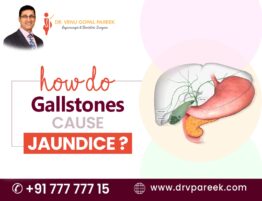
A hernia is a condition that occurs when an organ or fatty tissue pushes through a weak spot in the surrounding muscle or connective tissue. The most common type of hernia is an inguinal hernia, which occurs when part of the intestine pushes through a weak spot in the abdominal wall or in the groin when abdominal contents push through the inguinal canal. Other common types of hernias include hiatal (upper stomach), umbilical hernias and, incisional (resulting from an incision).
Anyone can get a hernia, though they are more common in men. They are more likely to occur in people who are overweight, elderly, have a chronic cough, are smokers or have a family history of hernias. The risk of hernias increases for individuals who have undergone surgery.
It’s important to understand all hernia symptoms since anyone can develop one. It is important to know that, although hernias are not likely to be lethal, they can cause serious harm. The pain they cause and their limitations on regular activities can make them uncomfortable. There are some cases in which hernias can result in serious injuries; some even result in death.
It is important to keep in mind that hernias that eventually lead to serious harm or mortality occur because they may not be treated effectively or quickly. That is to say, proper management of hernias and surgical repair can restore life to normal and minimize risks.
Types of Hernia
- Inguinal hernia: It occurs when a portion of the intestine protrudes through a weakened area in the lower abdominal wall.
- Umbilical hernia: It occurs when the intestine protrudes through the umbilicus (belly button).
- Femoral hernia: It occurs when the intestinal parts protrude through a weakened area of the lower abdominal wall/upper thigh near the femoral artery.
- Hiatal hernia: This is a condition in which the upper part of your stomach protrudes through the diaphragm into the chest cavity.
- Incisional hernia: It occurs when a portion of the intestine protrudes through an incision in the abdominal wall.
- Spigelian hernia: It occurs when a portion of the intestine protrudes through a weakened area in the abdominal wall near the midline.
Risks of hernias
Pain: Hernias can be painful and uncomfortable, especially when the hernia is large or the intestine is trapped in the hernia.
Obstruction: A hernia can obstruct the intestine, blocking the passage of food and waste. This can cause nausea, vomiting, and abdominal pain.
Infection: A hernia can become infected, leading to fever, chills, and other symptoms.
Strangulated hernia: A strangulated hernia is when the hernia is trapped and the blood supply to the intestine is cut off. This can cause tissue death and be life-threatening.
Bowel perforation: A hernia can cause a perforation of the bowel, which can cause abdominal pain, nausea, vomiting, and other symptoms. It can also lead to infection or sepsis.
What happens if hernias are left untreated?
We experience hernias just like we deal with other health problems in life — if not treated appropriately, they can become worse or larger. A mild symptom can quickly spiral into a serious one, potentially resulting in complications you didn’t anticipate.
It is important to consult a hernia specialist as soon as possible and seek medical advice. He can diagnose your condition and recommend treatment options.
Hernias are not self-healing problems; rather, the only successful treatment for a hernia is surgical repair.
A hernia may not grow in some cases and stay the same size, but it is highly unlikely that it will shrink without prompt medical attention. In extreme cases of hernia, the abdominal wall may become so weak with the growing size of the hernia that it can no longer support the contents of the abdomen, leading to a collapse of the abdominal wall. In these cases, surgery to repair the hernia also becomes much more challenging.
The best course of action is to treat a hernia early rather than to wait until it grows larger. In many cases, hernias that are smaller can be easily treated as well as recovering from these surgeries is also much faster.
When an intestine protrudes through the abdominal wall and cannot be pushed back in place, its contents may become trapped and suffocate surrounding tissues, cutting off their supply of blood.
In the absence of treatment, a strangulated hernia can cause necrotizing enterocolitis (severe inflammation of intestine) and sepsis, which are both life-threatening conditions.
Strangulated hernias can be more complicated and risky to treat than regular hernias; they also take a long time to heal and have a greater chance of recurring.
There are many people who believe the hernia they are suffering from is not be too problematic just because they aren’t experiencing any significant symptoms. In addition to growing larger, untreated hernias may also become more difficult to treat, more distressing, more painful, and can even be life-threatening.
For more detailed information on treatment, consult Dr. Venugopal Pareek, an experienced hernia surgeon in Hyderabad. He has more than 17 years of experience as a laparoscopic surgeon and bariatric surgeon. If you are having any hernia problem, he can help you. Call +91 91-777-77715 to book your appointment with the doctor.







